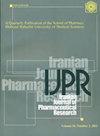Developing a Discrete Choice Experiment Instrument for Evaluating Patients’ Preferences in Precision Oncology
IF 1.8
4区 医学
Q3 PHARMACOLOGY & PHARMACY
引用次数: 0
Abstract
Background: In addition to clinical and technical considerations, patients’ preferences are essential for evaluating interventions such as precision medicine (PM). Objectives: This study aimed to identify and prioritize attributes of precision oncology that are important for patients to develop and validate a standard stated preference instrument. Methods: The key attributes of precision oncology and their related levels were extracted from the systematic literature review and were presented on a validated 5-point Likert scale questionnaire to experts (n = 35). In two rounds of Delphi, participants scored and prioritized the attributes through this personally administered questionnaire to identify the five most important ones to develop a discrete choice experiment (DCE) instrument. The developed DCE questionnaire was subsequently validated, providing a robust and standard instrument for evaluating patients’ preferences for precision oncology. Results: Based on the consensus criteria, the final DCE included four attributes and a total of 14 levels, which were access to treatment (easy/not easy), out-of-pocket (OOP) expenditures (four levels according to treatment costs in the country), change in life expectancy (LE, six levels from an average gain of three months to four years), and change in quality of life (QoL, improvement or no change). Conclusions: The above-mentioned attributes represent patients’ main preferences from the views of the Iranian experts. The developed DCE questionnaire can be used to assess patients’ preferences and willingness to pay (WTP) in precision oncology.开发离散选择实验工具,评估患者对精准肿瘤学的偏好
背景:除了临床和技术方面的考虑外,患者的偏好对于评估精准医疗(PM)等干预措施也至关重要。研究目的本研究旨在确定精准肿瘤学中对患者重要的属性并对其进行优先排序,以开发和验证标准的陈述偏好工具。方法:从系统性文献综述中提取精准肿瘤学的关键属性及其相关水平,并以经过验证的 5 点李克特量表问卷的形式呈现给专家(n = 35)。在两轮德尔菲法中,参与者通过这份亲自发放的问卷对属性进行打分和优先排序,以确定五个最重要的属性,从而开发出离散选择实验(DCE)工具。随后对开发的离散选择实验(DCE)问卷进行了验证,为评估患者对精准肿瘤学的偏好提供了一个可靠的标准工具。结果:根据共识标准,最终的离散选择实验包括四个属性和共 14 个等级,分别是获得治疗(容易/不容易)、自费(OOP)支出(根据国家的治疗费用分为四个等级)、预期寿命变化(LE,从平均延长三个月到四年分为六个等级)和生活质量变化(QoL,改善或无变化)。结论根据伊朗专家的意见,上述属性代表了患者的主要偏好。开发的 DCE 问卷可用于评估精准肿瘤学中患者的偏好和支付意愿(WTP)。
本文章由计算机程序翻译,如有差异,请以英文原文为准。
求助全文
约1分钟内获得全文
求助全文
来源期刊
CiteScore
3.40
自引率
6.20%
发文量
52
审稿时长
2 months
期刊介绍:
The Iranian Journal of Pharmaceutical Research (IJPR) is a peer-reviewed multi-disciplinary pharmaceutical publication, scheduled to appear quarterly and serve as a means for scientific information exchange in the international pharmaceutical forum. Specific scientific topics of interest to the journal include, but are not limited to: pharmaceutics, industrial pharmacy, pharmacognosy, toxicology, medicinal chemistry, novel analytical methods for drug characterization, computational and modeling approaches to drug design, bio-medical experience, clinical investigation, rational drug prescribing, pharmacoeconomics, biotechnology, nanotechnology, biopharmaceutics and physical pharmacy.

 求助内容:
求助内容: 应助结果提醒方式:
应助结果提醒方式:


